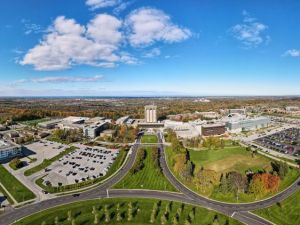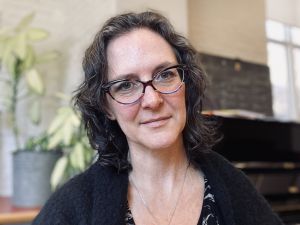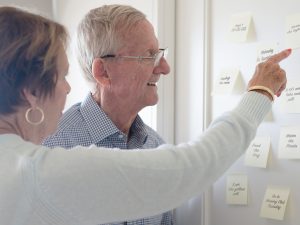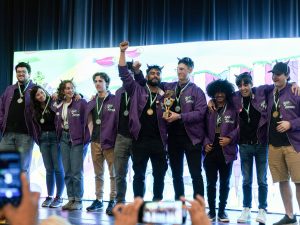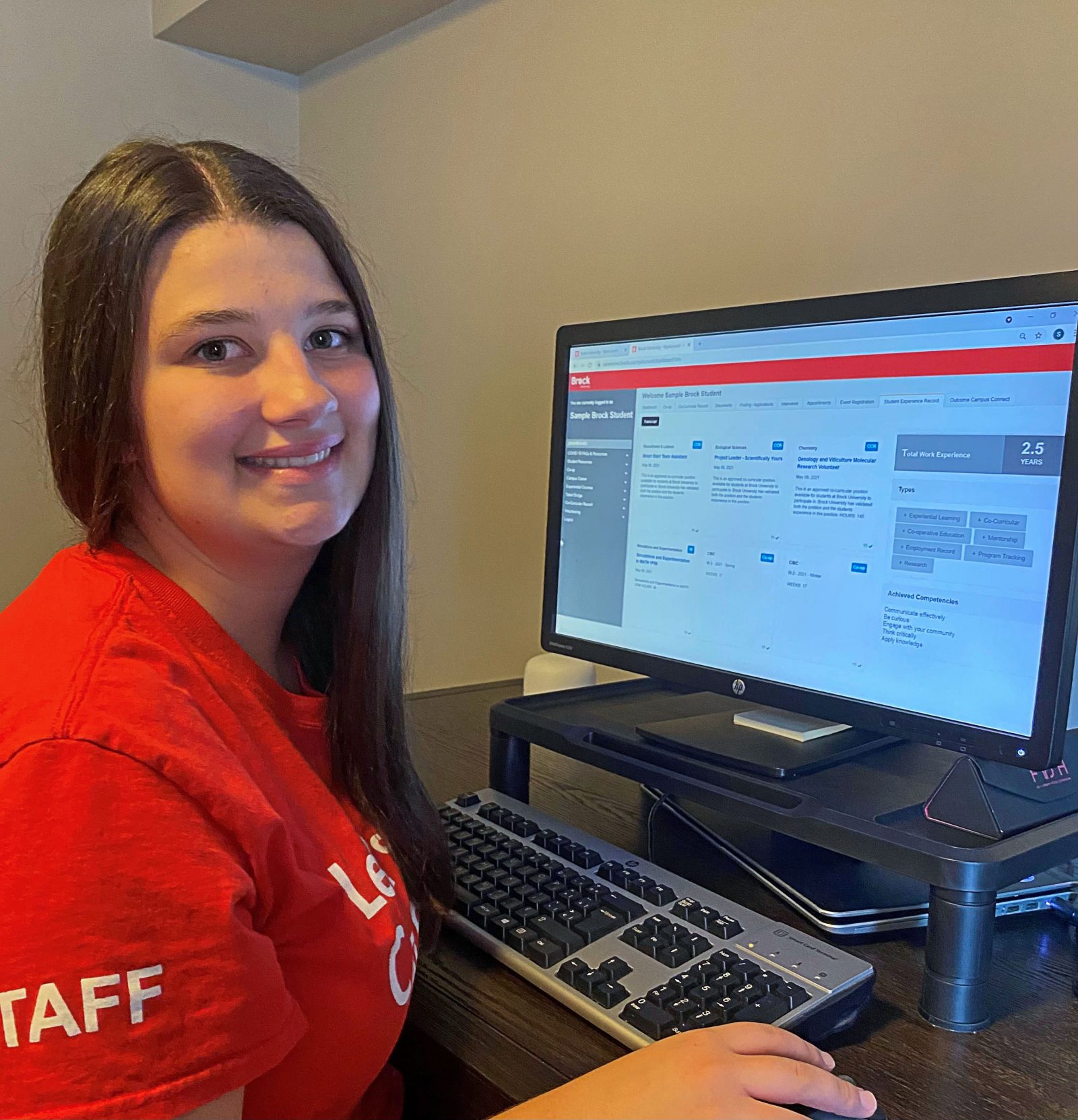 Bachelor of Education student Brieanna Wannack recently spent time exploring the online home of Brock’s new Student Experience Record.
Bachelor of Education student Brieanna Wannack recently spent time exploring the online home of Brock’s new Student Experience Record.A new system to track students’ work-related experiences while they are at Brock University is now live.
The Student Experience Record (SER) has replaced the Experience Plus transcript and will capture a wider range of student experiences, document student learning and contributions, and support professional growth and future career success.
The SER, which lives within Brock’s existing CareerZone platform, validates student experiences, requires reflection on their learning and identifies competencies they’ve developed. Qualifying experiences have been expanded significantly from the former Experience Plus transcript and now include both curricular and co-curricular experience, on-campus and off-campus volunteering and employment, and professional development activities that meet a defined set of criteria related to skill development and application.
For the first time, students who have a part-time job in the community, complete co-op work terms or support local businesses through service-learning projects, along with numerous other opportunities, can document those experiences and the skills they have acquired in one place.
Stephanie Harper, Brock’s Associate Director of Career Education, said the SER is a dynamic platform that captures and aggregates a student’s experiences, both inside and outside the classroom, and showcases their contributions to local and global communities.
“As students gain experience, it’s important that they also understand what they learned, the skills they gained and how to articulate their competencies to the outside world,” she said. “This lays a foundation for making more informed career decisions.”
Harper said students often don’t recognize the skills they already possess.
“Despite the fact that most students have worked a job, volunteered in the community or engaged in an experiential learning opportunity as part of a course, they don’t recognize these experiences as supporting their career goals,” she said. “When we ask students to talk about something they have done, we are able to prompt them to consider the skills they used and the learning that occurred, including the extent to which the experience aligns with their strengths and interests. For example, a student’s part-time job as a campus tour guide helps them develop communication skills and collaborate effectively with others, which can then be applied to other roles and experiences.”
The SER is anchored in Brock’s 10 core competencies and prompts students to consider the competencies they’ve developed through each of their experiences using a guided reflection process.
Students can also submit the number of hours they contributed to each of their experiences to support their reflections on competency development and overall learning.
“These hours roll up to a total number of accumulated years of experience, which is displayed on the record and can be shared with employers and other external audiences,” Harper said.
With the launch of the new system, stronger alignment with Brock’s Campus-Wide Co-Curriculum (CWC) has also been achieved through the introduction of a volunteer board and a more consistent approach to student reflection. Students will continue to engage in the CWC and those experiences will be tracked within the SER.
Harper said the pairing of the two experience tracking initiatives with the volunteer board is valuable for all involved.
“This benefits our community partners, who will experience an improved ability to reach Brock students and manage their volunteer recruitment process, while Brock also benefits from a more co-ordinated approach to account management of external partners,” she said.
To learn more about the new system, visit the SER website.
